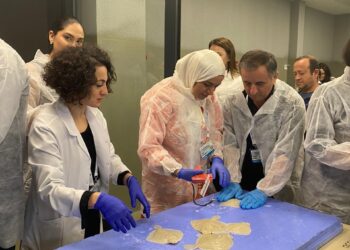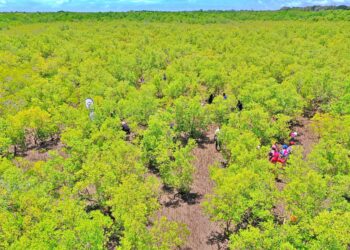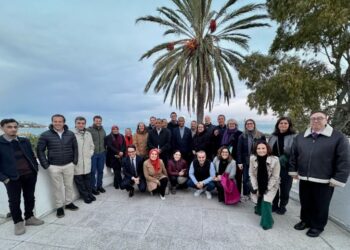Argentine aquaculture: a pillar for the development of the blue economy – A World Bank study on the value chains of pacú, rainbow trout and mussels highlights the potential of these species to become the cornerstones of a new blue economy. Aquaculture could become an engine for generating employment, healthy food and foreign exchange, although Argentina’s fishing industry, while growing, is still far behind the performance of countries with similar natural conditions. In 2022, Argentina achieved a record production of more than 6,000 tonnes of seafood products, but there is still plenty of room for growth.
With the support of PROBLUE, a fund administered by the World Bank to promote the sustainable development of marine resources, the study identified strategies that would allow Argentina to make the most of its potential in seafood. The country’s competitive advantages include 6,500 kilometres of coastline, 40,000 square kilometres of inland waters and a significant availability of raw materials from agriculture, which reduce dependence on imports. Aquaculture thus presents itself as an efficient way to convert plant proteins into animal proteins of high biological value.
Structures and human resources to support Argentine aquaculture
The existing regulatory framework, represented by Law 27.231 and the National Programme for Aquaculture Development (PRONADAC), provides a solid foundation for an orderly and sustainable growth of the sector. In addition, the country’s processing infrastructure and communication network facilitate the production and marketing of fish products. Human capital also plays a key role: the experience accumulated in the cultivation of trout and pacú, together with the scientific support offered by networks such as REFACUA, makes it possible to promote innovation and local solutions.
Priorities for aquaculture development
To maximise the sector’s potential, the study recommends three strategic actions:
- Investment in research and development: develop innovative technologies and cultivation practices to optimise production and reduce environmental impact.
- Support for small-scale producers: promote small-scale aquaculture, ensuring a fair distribution of benefits.
- Public-private collaboration: encourage partnerships between government, business and local communities to foster sustainable development.
Technological challenges for key fish species
Mussels
Challenges include improving methods of harvesting seeds from the wild and setting up laboratories for their purification. It is also crucial to support small producers in forming cooperatives to improve organisation and access to markets.
Rainbow trout
Considered the driving force behind Argentine aquaculture, rainbow trout are heavily dependent on imported inputs such as eggs and feed. The development of local genetic lines and the identification of new areas for sea farming are proposed.
Pacú
Although it generates more than 4,300 jobs and is fundamental to the regional economy, pacú production is limited by cold sensitivity and the small scale of operations. Investing in genetics to improve cold tolerance and stimulate productive clusters could unlock new opportunities.
The World Bank points out that Argentina has all the tools to emerge as a world leader in sustainable aquatic food production. Thanks to its natural resources, production expertise and commitment to sustainability, the country can contribute significantly to global food security and the protection of marine ecosystems.
Argentine aquaculture: a pillar for the development of the blue economy







